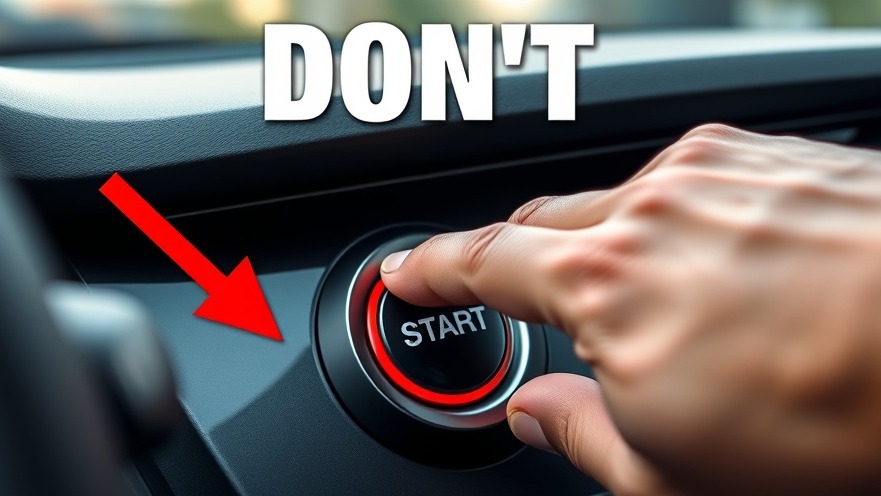
Common Car Maintenance Mistakes to Avoid
Owning a car comes with responsibilities, and one of the most vital is keeping it in good shape. Yet, many car owners often make simple mistakes that lead to severe consequences. Based on recent discussions about preventive car maintenance, it’s important to identify common errors that might be costing you both time and money. Here’s what you need to know to prolong your vehicle's life.
In 'Top 17 Dumb Mistakes NOT to do to Your Car', the discussion dives into the critical maintenance errors many drivers make, exploring key insights that sparked deeper analysis on our end.
The Cost of Ignoring Noises
Many drivers often overlook unusual sounds coming from their vehicles, assuming they will resolve on their own. Ignoring a squealing brake or a knocking engine can lead to catastrophic failure and hefty repair bills. In fact, brake-related issues are a significant cause of accidents. Regularly paying attention to your car's sounds can save you from being stranded or facing expensive repairs.
The Importance of Regular Oil Changes
Oil changes are essential for every car’s health. Engine oil lubricates moving parts, and neglecting to change it regularly can lead to sludge build-up and potential engine failure. Most manufacturers recommend changing oil every 5,000 to 7,500 miles depending on the oil type. Monitoring oil levels and clarity can create efficiency and save you costly repairs.
Why Tire Pressure Matters
Underinflated tires not only affect fuel economy but can also compromise safety. According to the US Department of Energy, just a 0.2% drop in tire pressure can lead to a noticeable reduction in fuel efficiency. It’s essential to check your tires monthly, particularly as temperature changes can significantly impact pressure levels.
Understanding Brake Maintenance
Brake pads should not be neglected; checking them regularly can protect you from accidents. Change intervals vary, but experts generally suggest inspecting every 10,000 to 15,000 miles. Ignoring this can increase stopping distances, endangering both you and others on the road. Keeping brake fluid fresh is crucial as well.
The Dangers of Cold Engine Revving
Starting your vehicle and immediately revving the engine is a common mistake. When oil is cold, it is thick and hasn’t circulated adequately, which puts undue strain on engine parts. Instead, allowing your car a brief warm-up can foster better long-term engine health. Smooth acceleration after starting is advisable.
Recognizing When to Replace Parts
Using subpar after-market parts can be tempting, but they often don’t meet necessary safety standards. Whether it's brakes or filters, investing in quality parts means investing in your safety. OEM parts may cost more upfront, but they prevent unforeseen complications, ensuring smooth operation and safety.
Bonus Maintenance Tip: Battery Care
A simple yet effective preventative maintenance tip is keeping an eye on your car battery. Corroded terminals can lead to starting issues. Regular cleaning with a mixture of baking soda and water will keep your battery connections clean and functional, ensuring you never face unexpected breakdowns.
In conclusion, by being mindful of these common mistakes, you can maintain your vehicle's performance and safety effectively. Regular checks and understanding your car's needs are vital steps towards ensuring long-term reliability. The next time you notice something unusual or are due for maintenance, don’t hesitate to act. Learning from the common pitfalls will save you money, time, and hassle.
 Add Row
Add Row  Add
Add 




Write A Comment